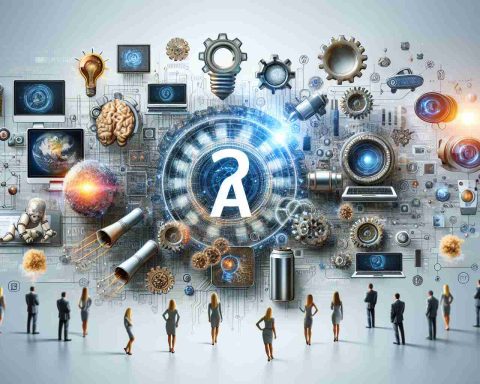Romania has made a remarkable mark at the International Artificial Intelligence Olympiad (IAIO) held in Riyadh, Saudi Arabia, securing a commendable third place in the overall nation rankings. The competition, which concluded on September 12, saw participation from 26 countries and a total of 92 contestants. This impressive achievement highlights the talent and determination of the Romanian team amid fierce international competition.
The Romanian team members showcased exceptional skills, bringing home three medals from the event. Andrei Lețu, representing the National College “Unirea” in Focșani, claimed the gold medal for his outstanding performance. Silver was awarded to Tudor Ștefan Mușat, a student from the National College of Computer Science “Tudor Vianu” in Bucharest, while Alexandru-Bogdan Miron from the National College “Emil Racoviță” in Cluj-Napoca proudly secured the bronze medal. Another notable participant from the same college, Tudor Morariu, contributed to the team effort.
The leadership behind this success included Miruna Zavleică, a doctoral assistant at the University of Bucharest, who served as team leader, along with deputy leader Daniel Popa, a teacher from the “Aurel Vlaicu” Theoretical High School in Orăștie. This achievement not only reflects the students’ hard work but also emphasizes the importance of nurturing talent in the field of artificial intelligence in Romania.
Romanian Students Shine at International AI Competition
Romanian students have captured attention on the global stage with their impressive performance at the recent International Artificial Intelligence Olympiad (IAIO) held in Riyadh, Saudi Arabia. The event, which concluded on September 12, featured 26 countries competing for excellence in AI, and the Romanian team secured an impressive third place overall.
In addition to their podium finish, the Romanian team also illustrated their ingenuity and collaboration, finessing skills that are increasingly essential in today’s digital world. Beyond the medals secured by individual students, the teamwork and strategies developed by the Romanian team contributed significantly to their overall success. This teamwork aligns with global trends in education focusing on collaborative problem-solving, particularly in STEM fields.
Key Challenges and Controversies
Despite this success, several challenges and controversies are intertwined with the growth of AI education in Romania:
1. Educational Funding: One of the main challenges is the lack of sufficient funding for advanced AI training and resources in Romanian schools. Many schools struggle to provide adequate technology and materials necessary for in-depth study in AI and related fields.
2. Retention of Talent: While Romanian students are excelling internationally, there is a growing concern about the retention of talented individuals. Many students pursue higher education abroad where they have greater opportunities in AI and technology sectors.
3. Ethical Concerns: The rise of AI brings ethical considerations, particularly relating to data privacy and job displacement. Engaging young minds in discussions about the ethical implications of AI is crucial yet often overlooked in educational settings.
Advantages of Romanian Students’ Performance
– Enhanced Prestige: Achievements at such competitions elevate the prestige of Romania’s educational institutions, attracting potential investments and partnerships in AI research and education.
– Career Opportunities: Performing well on a global platform enhances students’ prospects for careers in technology, providing them with networking opportunities and exposure to industry leaders.
– Motivation for Peers: The successes of these students serve as motivation for their peers in Romania, encouraging a wider adoption of artificial intelligence studies in schools.
Disadvantages or Limitations
– Pressure on Students: The intense competition can place significant pressure on students, impacting their mental health and leading to burnout.
– Resource Disparity: Not all students have equal access to high-quality education in AI, leading to disparities that could grow as the field evolves.
– Limited Real-World Application: While theoretical knowledge is invaluable, there is a need for more practical applications of AI in educational settings to fully prepare students for the workforce.
Conclusion
Romania’s prowess in international AI competitions should serve as a springboard for further investment in educational resources, student retention strategies, and ethical training in AI. Addressing these challenges will be essential for developing a robust future workforce in artificial intelligence.
For further exploration of developments in AI education and competitions, you can visit airomania.com.

















